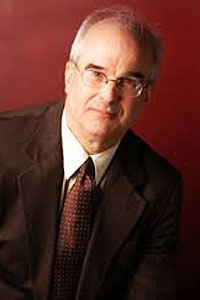For over 25 years now the cancer of "money politics" has been metastasising in Thailand. Cutting out -- even just back -- the corruption and inequalities brought about by money politics is Thailand's immediate democratic priority.
Subordinating the Thai people to the electoral mechanisms of unrestrained democracy as it had occurred under former prime minister Thaksin Shinawatra is likely to help money politics to return to Thailand.
Elections without checks and balances on the power of victors are no defence against corruption, authoritarianism and injustice.
The constitutional model advocated by the pro-Thaksin camp was first advanced by Jean Jacques Rousseau under the name of the "General Will of All" which was in reality only an idea known to a small number of self-selected participants in a new ruling elite.
Government under Rousseau's General Will of All was first tested by the Jacobins in the French Revolution. The model brought on first civil discord, then violence along with personal abuses of power, and ended up in Napoleon's imperial dictatorship.
When the power to declare what is the General Will of All in Thailand can be bought with money -- mostly money taken from people in taxes and fees in payment for monopoly services -- then Thailand will have the worst of all political systems: democracy and dictatorship combined into one cancerous source of dysfunction imposed on all people for the benefit of only some.
To stop the encroachment of money politics, Thailand needs first and foremost the rule of law.
As Francis Fukuyama writes in his new book Political Order and Political Decay, elections do not necessarily prevent political decay.
Such decay comes when a political system reverts to patrimonialism, which is little more than cronyism in the running of an administration.
Recent history in the Arab Spring, and in Iraq since the American invasion of 2003, also demonstrates that elections do not completely correlate with good governance and justice for all.
In my view, the manipulation of the ideal of the General Will of All by the Thaksin administration brought on distressing civil discord, street violence, and finally a military coup.
The draft constitution makes a good-faith effort to abort the evils of money politics by imposing sanctions on those in politics and government who would take personal advantage of public power.
My worry, however, is that these rules for accountability in the use of public trust and for sanctions of those who violate their fiduciary responsibilities to the people can be nullified easily through the application of sufficient amounts of money. The draft does not contain sufficient barriers against money politics. The legislature is not separated from the executive. If one could buy a majority of the legislature, dirty money politics will return.
A better constitution would elect an executive branch separately from the legislature. That way, buying or coercing a majority in the House of Representatives would not guarantee control of the government, with its many opportunities for profiting from public power. That division of power would be more likely to keep the cookie jar of financial profit away from politicians, reducing their incentives to use politics for gaining wealth.
So, the proposed crisis intervention panel is most likely a necessary evil, as long as money politics can continue to eat away at justice and the rule of law in Thailand.
Secondly, the proposed constitution also falls short in my book in not reforming the police. Pol Gen Phao Sriyanont's militarised police force of the 1950s is a drag on today's Thailand.
It, too eagerly in my judgement, ratifies the victories of money politics and other forms of illicit money-making. Thailand needs a constitutional order of checks and balances which places the police under the rule of law. The draft is not the best from my perspective but there are sound reasons for supporting it as a step towards curbing "money power" in Thailand.
Stephen B Young is global executive director of Caux Round Table and former dean and professor of law at Hamline University Law School. He is the son of former US ambassador to Thailand (1961-63) Kenneth Young.
